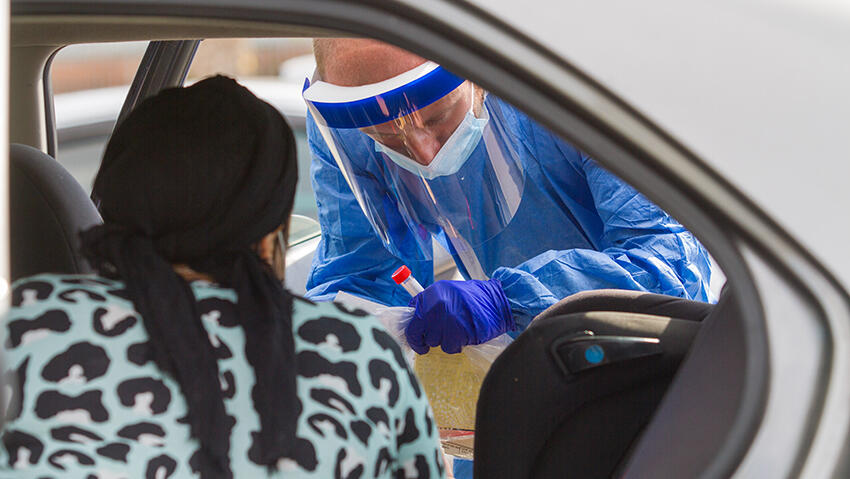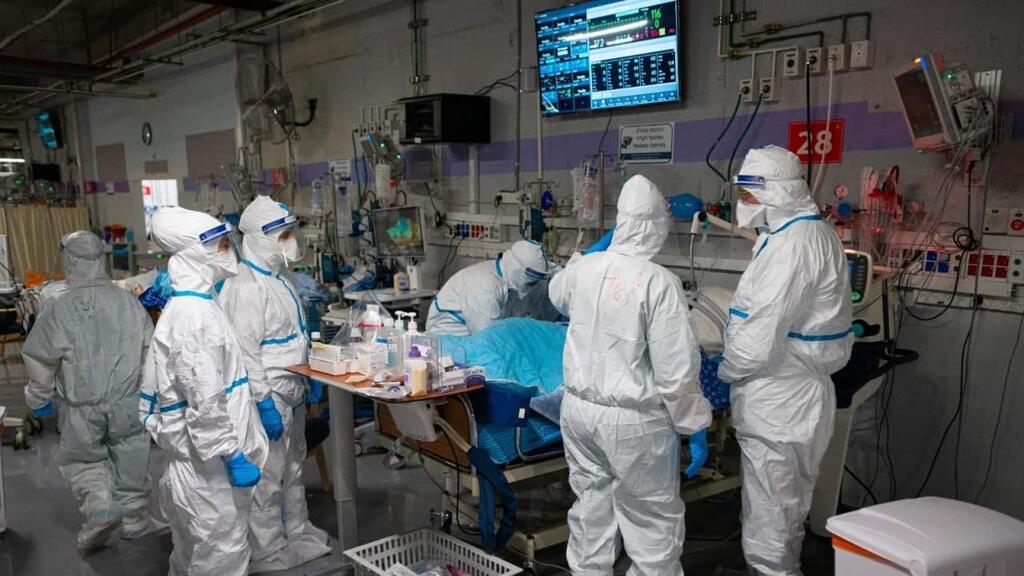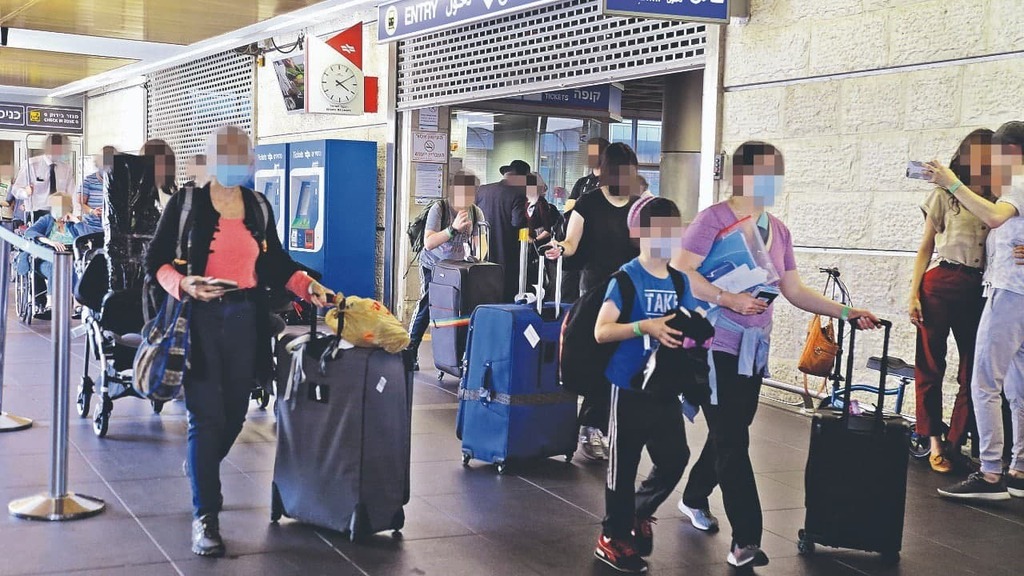Getting your Trinity Audio player ready...
As the fourth wave of the coronavirus pandemic nears its end, health experts weigh in on the necessary steps Israel must take to prevent a resurgence of the disease that could begin if aggressive variants of the virus enter the country.
Professor Galia Rahav, who heads the Sheba Medical Center's Infectious Disease Unit, says the latest COVID wave in the country was caused by the unpredictable behavior of the coronavirus and not by mistakes made by the Israeli government.
"We did not know when the resistance to the virus, provided by the vaccines, would start to decline and a further dose would be needed, " she says. "We learned as we went along."
Rahav says health officials must constantly monitor data and react in an expedited manner. "Clearly we must monitor contagion and antibodies to decide if another booster shot is needed. We must be vigilant and see an increase in vaccinations," she says.
Rahav also says officials must ensure no new COVID variants enter Israel through the Ben Gurion Airport - the country's main port of entry - and called on the public to act more responsibly.
"There is not enough emphasis put on the personal behavior of Israelis. People must continue to use masks – especially during crowded events - and maintain vigilance.
5 View gallery
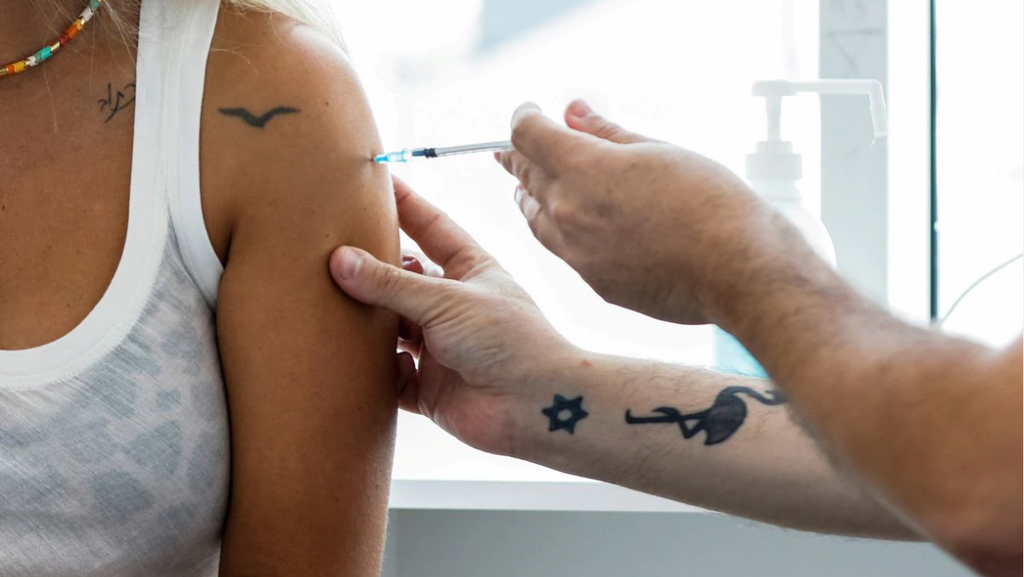

An Israeli woman receives her third shot of coronavirus vaccine in Tel Aviv, August 30, 2021
(Photo: Reuters)
"Parents should not send their young kids to kindergarten or school if they are unwell and refrain from going to work if they are ill," she says.
Rahav noted that the behavior of the public in other countries is more disciplined.
"It is hard to predict whether Israel will experience a fifth wave of COVID-19. We want to live normal lives alongside the virus but that is not a mutual feeling," she says.
"Personally, I am traumatized by this disease. Watching people die, one after the other, is traumatic. How much can we take?" Rahav asks.
"We can now see the light at the end of the tunnel, but I hope we don't find ourselves in another tunnel in future."
Professor Yehuda Adler, an expert in cardiology says that post-COVID symptoms are very predominant in children.
"More and more children suffer from post-COVID symptoms, which appears four to six weeks after recovery from the virus. In many cases children did not even know they were ill. These cases can lead to serious illness, and even death," he says.
Adler believes many mistakes were made during the fourth wave of the virus, including a failure to prevent new variants from entering the country through the airport and the failed epidemiological investigations apparatus.
"The airport is still vulnerable and unprepared to prevent new variants from entering. You can't hermetically seal it off, but I think variants can enter due to people ignoring regulations. There is also a lack of enforcement, when instead of waiting at home for the result of the PCR test, people walk around outside," he says.
5 View gallery
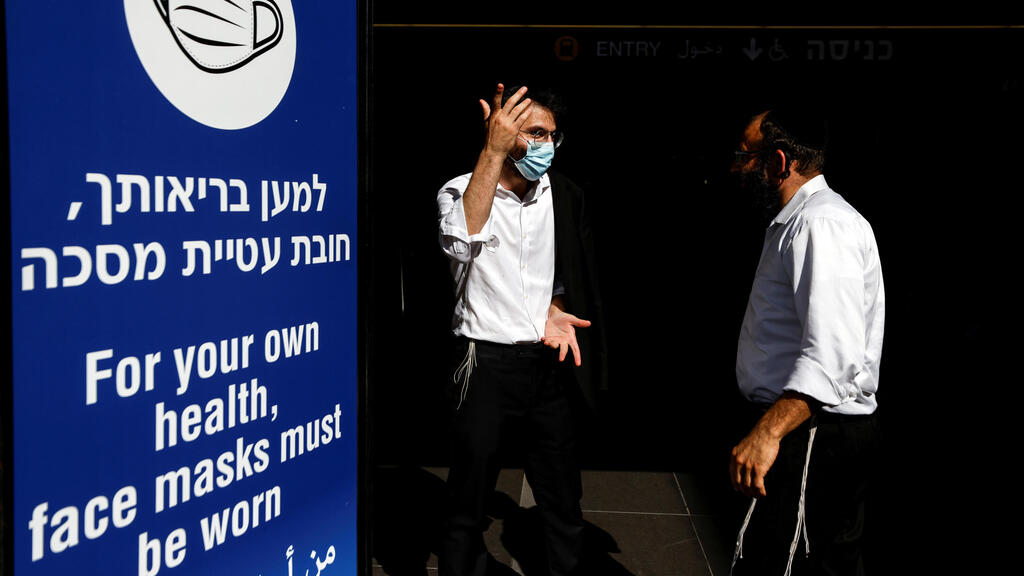

Men stand next to an information banner at Israel's Ben Gurion International Airport, amid a spread of the Delta variant of the coronavirus disease (COVID-19), near Tel Aviv
(Photo: Reuters)
Cyrille Cohen, a member of the advisory committee for clinical trials on SARS-COV2 vaccines at the Health Ministry, is also encouraged by the lowered morbidity rate and the drop in seriously ill patients.
"We have to learn from past mistakes in order to ensure there is no spike in infections," he says. "There must be a basic level of vigilance like the use of masks. Rapid tests are also important in order to prevent contagion because people who are concerned that they may have been infected can get tested quickly and know," he says.
Cohen hopes the right lessons were learned from the past mishaps at the airport and the poor enforcement of COVID regulations.
"I hope the shortcomings at the airport are dealt with. I recommend an additional rapid or PCR test a number of days after arriving in the country. I also think that if the government sets regulations they must be enforced, and the public must expect that."
Still, Cohen says that more waves of COVID-19 are possible, depending on the ability of new variants to spread despite vaccines. "All possibilities must be considered and planned for in order to act quickly," he says.
In the meantime, the coronavirus czar, Professor Salman Zarka, warned that the fourth wave of the virus is still here. In a briefing with reporters on Monday, Zarka said there should be no more easing of restrictions at this time.
"Experience after the third wave of morbidity taught us to be careful and act with moderation," he said.
"The virus is raging still all over the world and new variants are appearing while many places do not have the benefit of vaccines. We must be very vigilant and prepare to prevent a fifth wave from occurring," he said.


